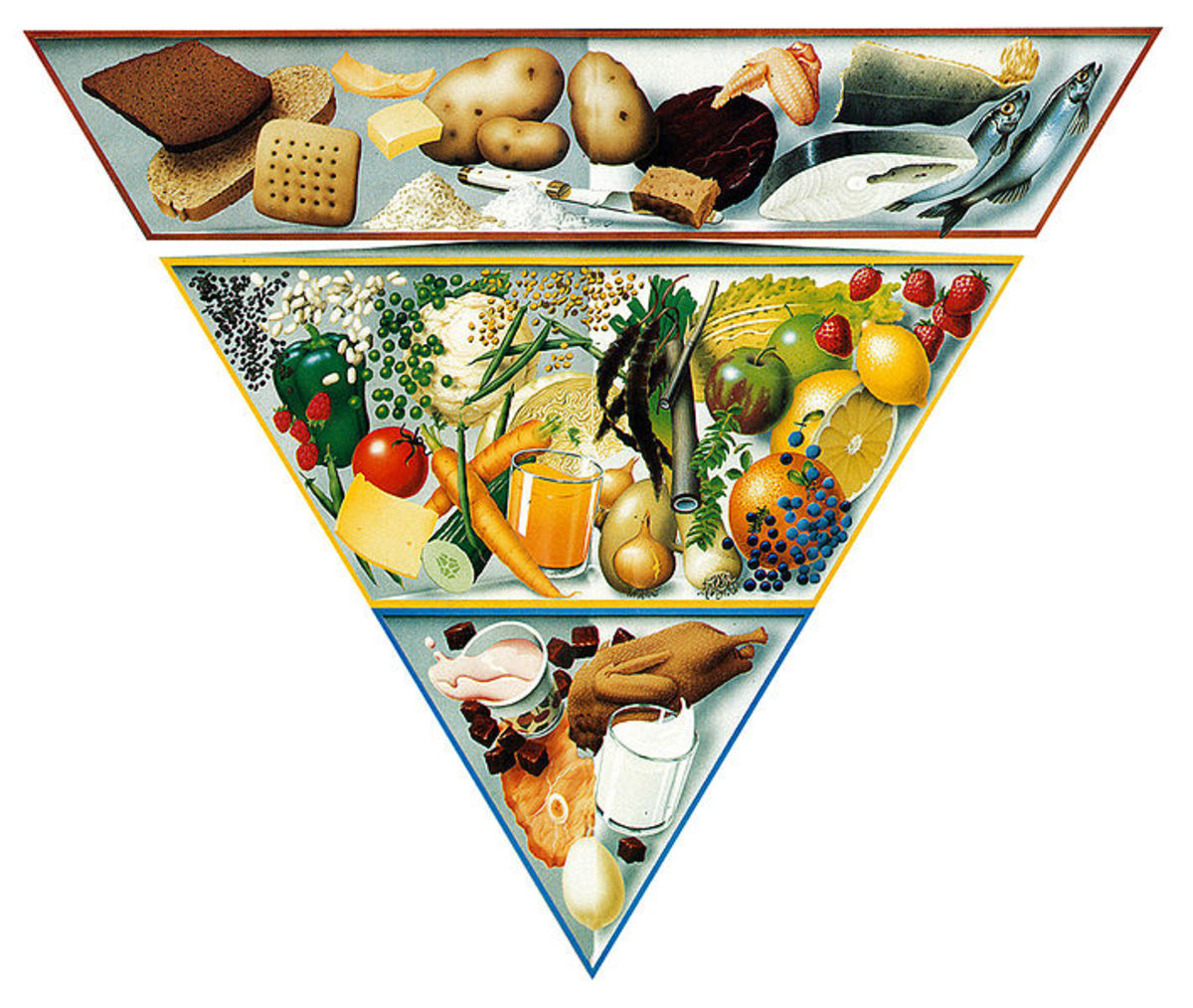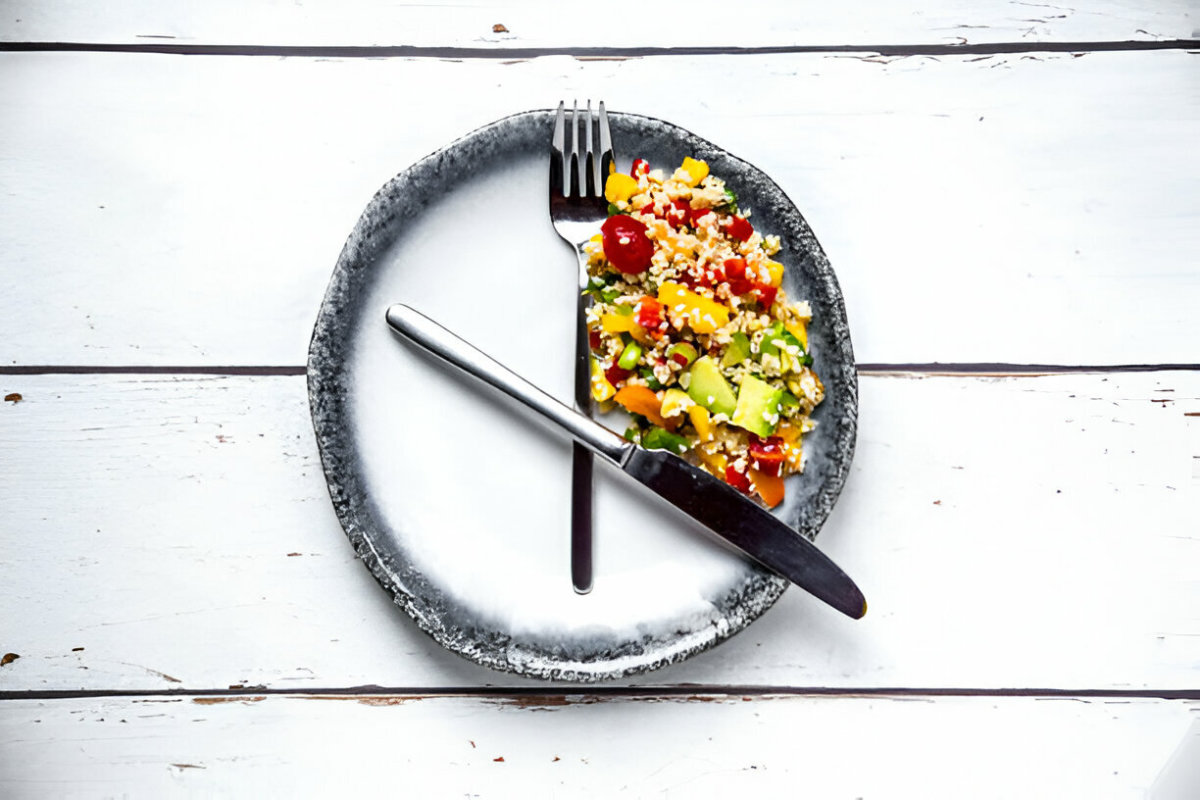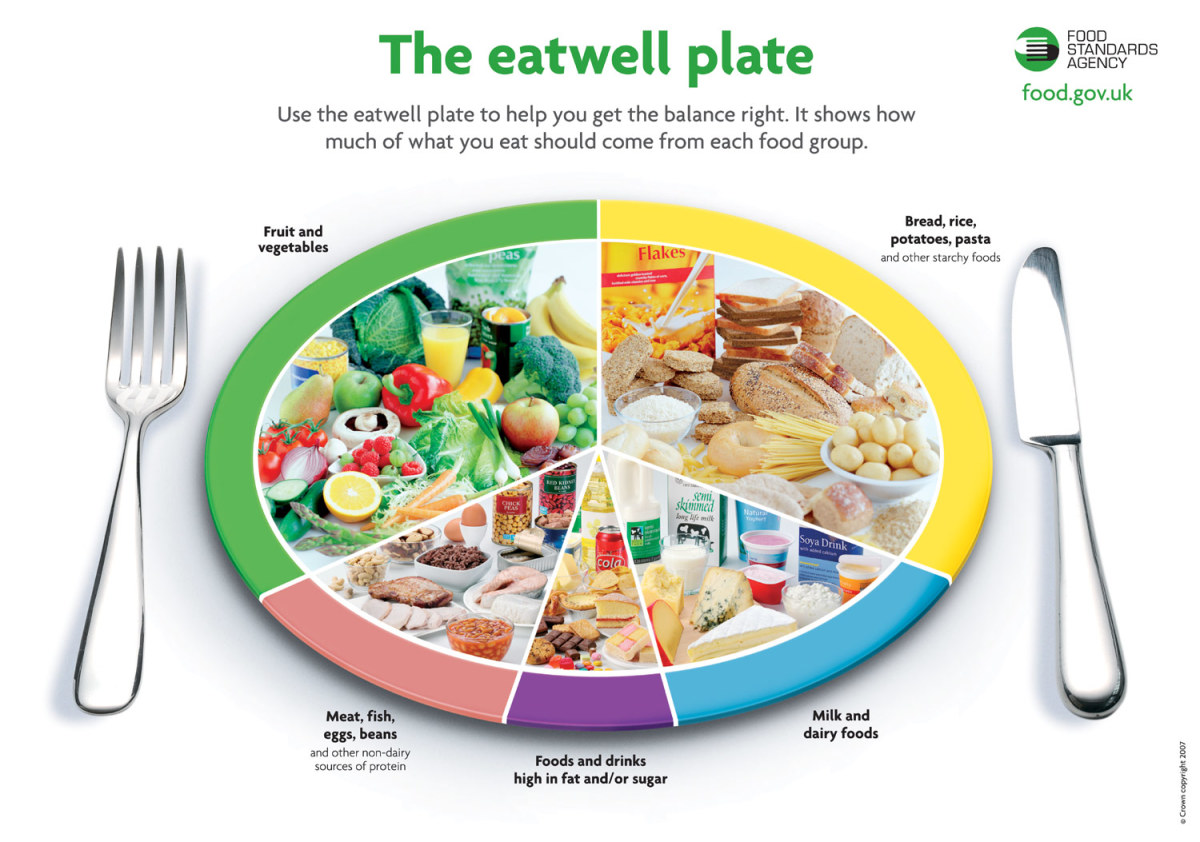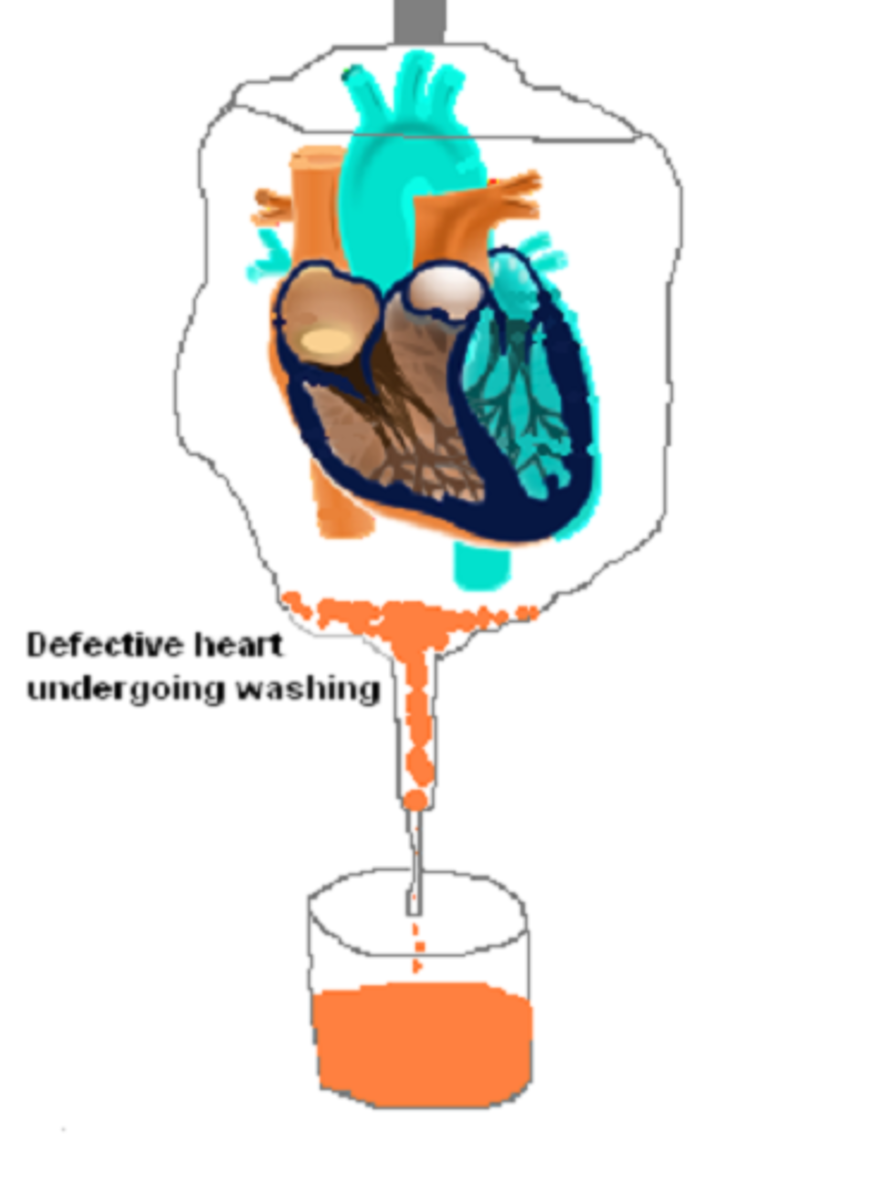Want to live longer ? Eat less!
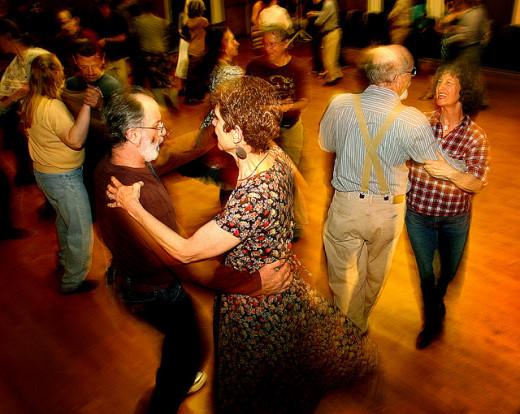
Living longer is easy ...
I have this quote going round in my mind ‘If you would prolong your life, eat sparingly’. Now, I believed it was attributable to Dr. Samuel Johnson, the great lexicographer, but I have so far been unable to substantiate that so if anyone can help out I’d be grateful.
Whichever historical figure said it is probably less important than the fact that they hit the nail squarely on the head. Modern science has indeed proven, after many, many years of research on animals such as rats, mice and rhesus monkeys, that cutting down on the intake of food did in fact extend their lives.1 Not only that but they were also healthier ... much healthier than their normally fed counterparts.
Now human volunteers 2 have also proved that eating less makes them feel younger and fitter ... and although it is too soon to say whether or not they will live any longer than their peers, accidents excepted, their present quality of life is certainly much improved.
It is, as they say, one to watch.
Weight loss ... a fortunate side effect of eating less to prolong life.
Whilst this piece is not about dieting to lose weight per se this does come as a beneficial, and somewhat obvious, side-effect of reducing calorific intake.
As we all know maintaining the correct weight for our age and height is vital for overall health but, despite this knowledge, the developed world now has an epidemic of obesity spiralling out of control.
We have a love affair with food, excessive amounts of it, to the detriment of ourselves ... and the peoples of the undeveloped world. It could even be that these ‘meek’ or indeed 'not so meek' will one day inherit the earth when the western world has gorged itself to death on supersize burgers and fries.
How does eating less result in longevity?
Although scientists now know that reducing food intake results in longevity, by as much as 50% again in some experiments with rats, they are still not entirely sure of the mechanism by which this works.
There are three main theories at present:
1) that being slightly underfed acts as a mild stress trigger to the immune system to keep it permanently alert to incursions of age-related illnesses.
2) that the less food eaten the less metabolic processing the body has to do resulting in fewer damaging by-products produced in the form of free radicals (oxidisation), the body’s rust. There is already some evidence hinting that people with a slower metabolic rate already naturally live longer. (It is well known that free radicals are extremely damaging to the cells of the body hence the current popularity with anti-oxidants, either in the form of natural superfoods or as supplements which mop up the free radicals and limit their damaging effects).
3) that eating less encourages the production of the enzyme, peroxiredoxin, which is vital for minimising cellular damage. Eating too much has been proven to inactivate this valuable enzyme.3
However none of this changes the fact that although science does not have all the answers to the puzzle there is solid evidence for a link between eating less and longevity.
Eating less promotes health into old age.
The fact that the lowering of calorific input to the human body reduces the incidence of age-related diseases would seem to result in a win/win/win situation showing a clear translation into a healthier extended life.
Reduction of food intake = beneficial side effect of weight loss = maintenance of better health (i.e lack of age-related illnesses) = extension of life.
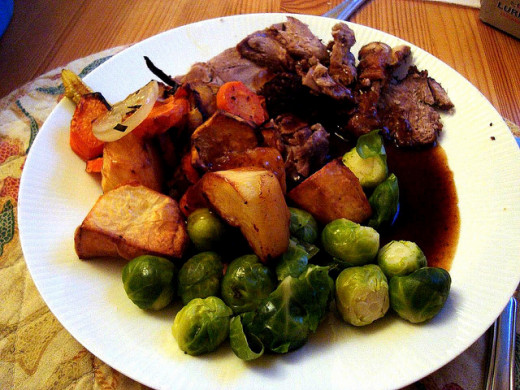

So, just what is a restricted diet?
Scientists class a restricted diet as one with an intake of 25 - 30% fewer calories per day, although it still needs to be a properly balanced mix of all food groups to ensure access to essential nutrition.
In the UK a 25% reduction means reducing the average recommended intake of 2550 calories a day to 1912.50 cal. for men and from 1940 cal. to 1455 cal. for women. This is a rough guideline as the amount could vary according to what work you do. If you do heavy manual work you may need all the calories you can get and then some.
It is interesting here to note that experiments done with the average eating pattern and an increase in exercise did not appear to result in any extension of life.
Don’t try this at home!
Whilst a great many of us would most definitely benefit from eating less it is important to approach such research with common sense. It would not be wise for us all to reduce our food intake to starvation levels on guesswork.
The volunteers in the restricted eating experiment were scientifically assessed as to what amount of reduction they needed to make a difference, the reduction was achieved over an reasonable period of time and they were constantly monitored.
It is more than likely that as soon as the research has the answers we will all be able to access the relevant help to monitor our own 'eating less' regimen.
Guidelines for sensible eating.
In the meantime we should all help ourselves by eating more sensibly. As a starting point eating fewer calories could be as simple as drinking less alcohol and reducing the size of the portion we put on our plates.
Avoiding processed and convenience foods which are usually laden with salt, sugar and incomprehensible additives that are there merely to extend shelf life or make the food look more attractive, must also go a long way to helping with reducing the intake of ‘empty’ calories.
Cooking from scratch is something that many of us have forgotten how to do but it is the only way to be sure that you know exactly what is in your food.
Simply grilling a small piece of meat or fish, brushed in olive oil and scattered with herbs, and putting it on a plate with plenty of fresh salad takes up only a little more time than dealing with convenience food anyway if you keep it simple. Mop up the meat juices and salad dressing with a small hunk of fresh artisan wholemeal bread if you need the carbs and that’s it, a filling and healthy meal.
The alternative?
It seems sensible to limit our food intake if we can do it in a balanced way and without damaging ourselves, simply for the benefits it brings, both in the short term (weight loss) and the long term (better health in old age).
We should look at it as not just a case of trying to extend our lives because we are afraid of death but more because we are afraid of decrepitude and illness in old age. Old age becomes little more that an unendurable burden when we are severely limited by pain and illness.
And who knows, limiting our own self-centred grabbing of the world’s resources might just free up a little more for the people in the third world who might love to just have the problem of obesity.
Further information on this subject ...
- BBC News - Intermittent fasting: The good things it did to my body
When Peter Bowes took part in a clinical trial of an intermittent fasting diet, he of course lost weight and felt hungry. But his body may also have entered a "healthy ageing" mode. - BBC News - The power of intermittent fasting
Fasting can not only reduce weight but also has the potential, if properly controlled, for wider health benefits, - BBC News - Oldest man in history Jiroemon Kimura dies at 116
A Japanese man recognised as the world's oldest living person and the oldest man recorded in history dies aged 116, local officials say. - BBC News - Intermittent fasting: Trying it out for science
Intermittent fasting is a fashionable form of dieting, but there's little hard evidence about what it does to the body. Peter Bowes joins a clinical trial to find out.
Sources:
1. Cornell University, 1935.
2.Comprehensive Assessment of Long-Term Effects of Reducing Intake of Energy (CALERIE) study at Tufts University, Boston, 2010.
3) University of Gothenburg, Sweden, 2011.

